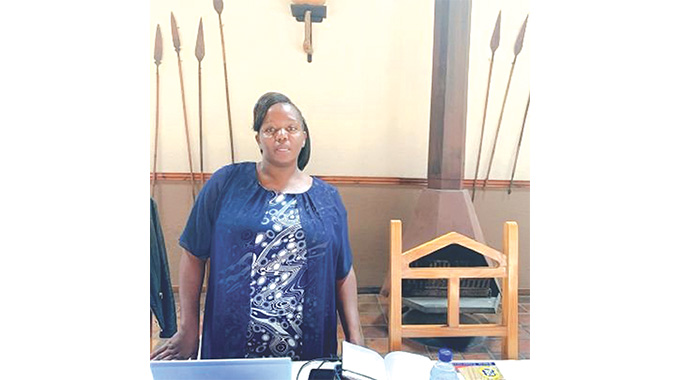GBV spike during Covid-19 pandemic shows a need to invest in coping mechanisms

Hazel Marimbiza
WHEN Zimbabwe went into lockdown to protect citizens from Covid-19, women and girls faced an increased risk of exposure to gender-based violence (GBV).
Although GBV is known to be pervasive in all settings, Covid-19 disrupted existing protective structures and created multiple circumstances that led to various forms of violence, abuse, and exploitation.
In spite of increased global awareness of the need to address GBV amid the Covid-19 pandemic, its prevalence was difficult to determine, in light of a large number of cases that went unreported, as well as the limited resources that were in place for gathering this type of evidence in emergency contexts.
Experiencing GBV during the Covid-19 has been associated with a host of negative health, psychosocial, and developmental outcomes in the lives of survivors — both in the short-term as well as the long-term.
The United Nations has described the impact of Covid-19 on violence against women and girls as “the shadow pandemic” following a global increase in domestic violence. Without sufficient attention to preventing and responding to GBV, in Covid-19 response and recovery measures, women’s and girls’ rights across the world were threatened.
In Zimbabwe, GBV service providers recorded an increase in reported GBV cases compared to trends prior to the pandemic.
Musasa Project director, Mrs Precious Taru said the increase in the number of reported GBV cases since Covid-19 started is disturbing.
“For Musasa it was more worrying when we did a comparison of 2019 and 2020 sexual violence data between January and August. In 2019 we had 995 reported cases of sexual violence at Musasa.
“But when we went into 2020 that same period we had 4 447. Already we could see there was a spike in GBV cases being reported. And even now we are already at more than 2 000 cases of sexual violence,” said Mrs Taru.
She revealed that GBV cases spiked when the Covid-19 pandemic started because GBV was a bench backer within Zimbabwe’s humanitarian response mechanisms.
“There wasn’t that acknowledgment that we need to start thinking around addressing women complaining of GBV.
“GBV was not an essential service at national level. We had to wait a long time until it was classified as an essential service,” she said.
She added that resourcing was extremely poor.
“Cases of GBV at times were relegated to the back seat. For example, some survivors could not be attended to by police as they say they have no vehicles to go and investigate the issue. As a result, GBV cases were trivialised, the victims would report and be told to go home and work things out with the perpetrator. Also, sometimes survivors needed antenatal care but the clinics would be closed,” said Mrs Taru.
Gender and inclusion specialist, Mr Nixon Nembware said the lack of response mechanisms to fight GBV had horrendous effects on victims.
“Children did not go to school for a year and predators preyed on them. Statistics say that 5 000 girls were impregnated out of this,” said Mr Nembware.
Mr Nembware further conducted a qualitative study on the effects of GBV during the lockdowns and the results proved that victims suffered greatly from GBV.
“I did a research on GBV, in Matabeleland North and South which covered Nkayi, Bubi, Umguza, Umzingwane and Lupane and the study revealed that 10 girls in each village fell pregnant during the initial lockdown and these girls were not returning to schools. Also during that period some girls were living in difficult circumstances and their only chances of survival were to engage in transactional sex so as to survive,” said Mr Nembware.
With these statistics at hand, a lot needs to be done to curb GBV cases especially if the country is to find itself in another crisis like the pandemic.
While humanitarian crises can increase the risk and instances of GBV, they can also provide opportunities for positive change, allowing for a shift in gender-related attitudes, norms, policies and practices that perpetuate and condone violence against girls and women.
Mrs Taru highlighted that Zimbabwe needs an adequate legislative system to respond to GBV at policy level.
“We need a strong legislative environment because the one we currently have is weak. In most cases we discover that the same perpetrator that has been acquitted commits the same crime over and over again. This means that we don’t have enough deterrent measures in place to ensure that we are classifying these cases as horrendous. We need to start reflecting on how we address issues of that nature from a legal perspective,” said Mrs Taru.
She added that there is also need to speed up the process of policy formulation in regards to GBV.
“It has been dragging for long. We have an inter-ministerial taskforce dedicated to this process but if you look at the policy drafting and re-alignment that have been done so far none speak to GBV,” she said.
“We also need constitutionally mandated platforms to conduct national research on prevalence of GBV so that they can inform national policy because currently what we have is disjointed data,” added Mrs Taru.
Furthermore, she indicated that there should be priority budgeting towards GBV.
“In Zimbabwe we have an Aids levy, so we have to start thinking around a GBV fund because GBV services are not free. Victims meet their travelling costs and some cases go down the drain because victims cannot meet the costs.
“Also, we need to have a dedicated court on GBV. We have a dedicated court on divorce, why not have one on GBV in order to make sure the processes are faster than now,” said Mrs Taru.
She also urged Government to invest in setting up GBV warning systems.
“Countries such as France last year had victims getting into shops and report an incident of GBV using codes. I believe this can also be done in Zimbabwe. But we just have to make sure that we contextualize it by decentralizing it such that women can report cases of GBV from where there are and not have to travel long distances to report to police,” said Mrs Taru.
Since GBV is a widely known problem that is mainly perpetrated by men, and community members and individuals who tolerate negative masculine practices, ending violence in our communities is a responsibility of the whole community and it is significant that mechanisms to deal with GBV involve men and boys by making sure that they are active participants and promoters of change to get rid of the current status quo.
Fathers Against Abuse co-founder, Mr Alois Nyamazana said men should be involved in the fight against GBV.
“We need to help men to resolve conflicts with their wives without being violent. Organisations like Musasa have done well in empowering women with knowledge but when those women go back home the men still perpetuate violence. Thus it’s important for men to also be educated to shun violence,” said Mr Nyamazana.
GBV hinders achievement of the SDGs because it infringes upon girls’ and women’s full and equal social, economic and political inclusion and participation. Reaching the vision, goals and targets of the SDGs depends on girls’ and women’s safety, empowerment and freedom from violence. Ending GBV will contribute directly to achieving gender equality (SDG 5) and to promoting peaceful and inclusive societies (SDG 16).
Other goals — such as ending poverty, ensuring healthy lives and well-being at all ages, and ensuring inclusive and equitable quality education — also depend on eradicating such violence.










Comments